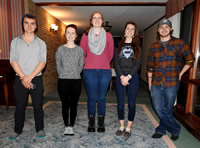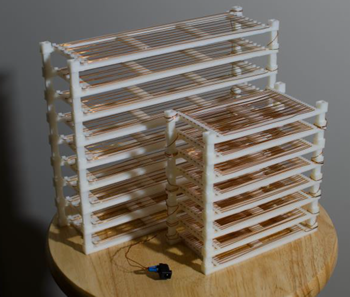
HOUGHTON — For five Michigan Technological University students this year, their homework includes their actual home.
This is the first year for Tech’s Sustainability Demonstration Home, where the students are tracking their energy and waste, as well as carrying out projects on how to reduce energy use.
“This semester, we’re kind of working side by side,” said Rose Turner, a fourth-year environmental engineering student and the only of the house’s residents on the Enterprise team.
Cooper Mineheart, a second-year mechanical engineering student, has learned what he can and can’t recycle.
Thomas Richter, a fourth-year mechanical engineering student, said his consciousness of how small changes add up will stick with him after he leaves the house.
